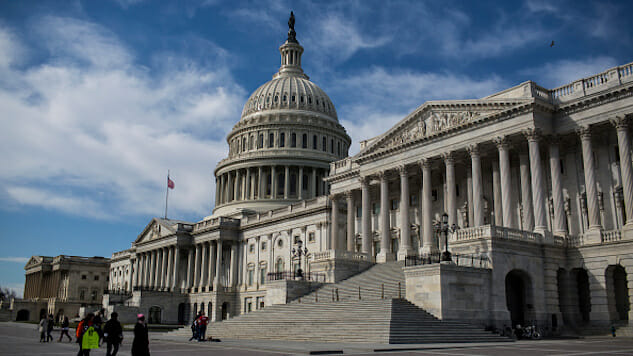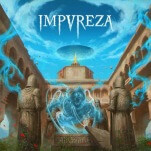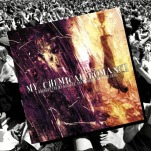Pro-Music Creator Streaming Payment Bill Pushes Forward
Photo by Zach Gibson/Getty
On Wednesday, the House of Representatives unanimously voted to pass the Music Modernization Act (MMA). The bipartisan bill, HR 5477, was introduced earlier this month by co-sponsors Robert Goodlatte (R-Va.) and Jerrold Nadler (D-N.Y.), passing on Wednesday with 415 votes. It combines three previously introduced bills into one mega-bill, aimed at improving the system through which music creators get paid.
The most important of these three bills, also called the Music Modernization Act, creates an organization to collect and distribute royalties from streaming services. The bill also contains the CLASSICS (Compensating Legacy Artists for their Songs, Service, & Important Contributions to Society) Act, which secures royalties for recordings made before 1972, and the AMP (Allocation for Music Producers) Act, which codifies the method in which the digital performance rights organization, SoundExchange, pays royalties for its engineers and producers. AMP would also restructure the form through which the Copyright Royalty Board determines its rates, changing its legal-based standard to one that reflects variable market using a “willing buyer and willing seller” standard. While most companies were already using this market standard, some companies, primarily Sirius XM, were using what’s known as the “801(b) standard” to determine their rates. The satellite radio company is among the few companies that oppose the bill, because it would ultimately lead to them raising their rates.
Surprisingly, one of the biggest opponents of the bill is the Songwriters Guild of America (SGA). Billboard reveals that the president of the SGA, Rick Carnes, addressed his concerns regarding the legislation in a letter to a proponent of the bill, Rep. Doug Collins (R-Ga.). The letter states that while the legislation has a lot of good points, it also contains a “number of serious problems” that would need to be addressed before the SGA gives it their support.
The “enactment of the proposed bill as currently constituted would—to the best of our knowledge—represent either one of the first times or the very first time in history that any Government has acted to sanction the creation of a music copyright licensing and royalty collective over which creators themselves would not share at least equally in governance,” Carnes wrote. “That is a concept that we cannot support.”
On the other side, the MMA is currently being hailed as a historic piece of legislation by both politicians and music industry members alike. Speaking from the House floor on Wednesday, Goodlatte was quoted as saying that the bill “brings early 20th century music laws for the analog era into the 21st century digital era,” adding, “music is no longer written on piano rolls, and our laws shouldn’t be based on that technology either.”
-

-

-

-

-

-

-

-

-

-

-

-

-

-

-

-

-

-

-

-

-

-

-

-

-

-

-

-

-

-

-

-

-

-

-

-

-

-

-

-








































